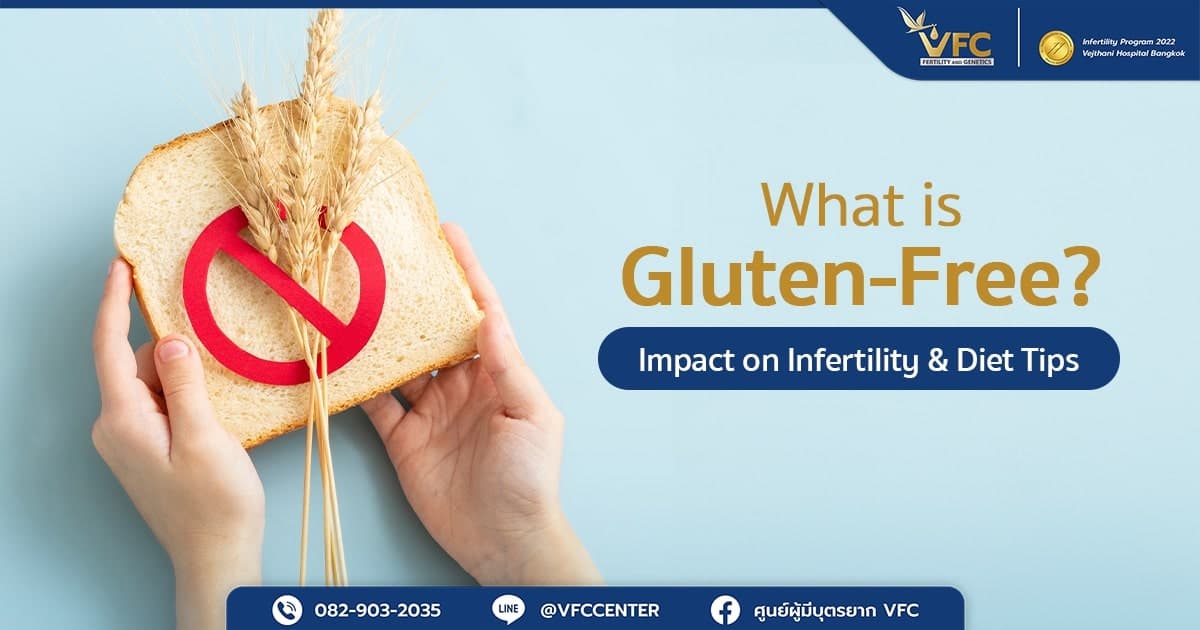
Today, infertility is an increasingly important concern for many couples. One factor that’s often overlooked but may affect pregnancy chances is nutrition, especially what is gluten-free and how it relates to reproductive health. Numerous studies suggest that gluten intolerance or celiac disease can impact reproductive health and may unknowingly cause infertility.
What Is Gluten?
Gluten is a protein found in several grains, especially wheat, barley, and rye. It provides elasticity and chewiness to dough, making bread and baked goods soft and tasty. Gluten is composed mainly of two proteins: glutenin and gliadin. Gliadin is the component that triggers allergic reactions in those sensitive to gluten.
Foods Containing Gluten
Gluten is commonly found in many everyday foods such as all types of bread, pasta, noodles, certain oats, baked goods, cakes, cookies, beer, soy sauce, various seasonings, and many processed foods with added wheat flour. It can also be present in some candies and dietary supplements.
Gluten Intolerance and Celiac Disease
Differences Between Gluten Intolerance and Celiac Disease
Celiac disease is an autoimmune disorder where the body produces antibodies against gluten, causing inflammation and damage to the lining of the small intestine, which impairs nutrient absorption. Non-celiac gluten sensitivity causes similar symptoms but does not damage the intestinal lining or produce the antibodies seen in celiac disease.
Symptoms to Watch For
Gluten intolerance symptoms vary widely, from digestive issues like bloating, stomach pain, diarrhea, constipation, nausea, and vomiting to non-digestive symptoms such as rashes, fatigue, headaches, joint pain, anemia, neurological problems, and reproductive system irregularities.
Hidden Symptoms and Diagnosis
Some individuals may have mild or no obvious symptoms, often overlooked, but chronic inflammation can persist and negatively affect long-term health. This inflammation may also impair reproductive system function, leading to unexplained infertility.
How Gluten Impacts Infertility
Inflammation and Poor Nutrient Absorption
When gluten-intolerant individuals consume gluten, intestinal inflammation occurs, damaging the intestinal lining and impairing absorption of key reproductive nutrients such as folic acid, vitamin B12, iron, calcium, vitamin D, and zinc — essential for reproductive cell production, conception, and fetal development.
Impact on Hormones and Pregnancy
Chronic inflammation can interfere with reproductive hormone production and function, including estrogen, progesterone, LH, and FSH, leading to irregular menstrual cycles, anovulation, and ovarian dysfunction. It may also increase the risk of miscarriage, preterm birth, and placental abnormalities.
Diagnosis and Self-Care
Who Should Suspect Gluten Intolerance?
- Those with chronic digestive symptoms
- Individuals with repeated miscarriages
- People facing unexplained infertility
- Patients with other autoimmune diseases, such as Type 1 diabetes or thyroid disorders
- Those with a family history of celiac disease
- People with unexplained anemia or nutritional deficiencies
Diagnostic Methods
Diagnosis usually begins with blood tests for specific antibodies (Anti-TTG, Anti-Endomysial). Abnormal results might require an endoscopic biopsy to examine the intestinal lining.
For suspected non-celiac gluten sensitivity, consultation with a nutritionist or specialist is recommended.
Managing Gluten Intolerance
The most effective treatment is strict avoidance of gluten-containing foods. This allows healing of the intestinal lining, improved nutrient absorption, and symptom relief — benefiting reproductive health over time.

Gluten-Free Foods: A Fertility-Friendly Choice
What not to eat on a gluten-free diet:
- Wheat, barley, rye
- Products made from these grains
What to eat on a gluten-free diet:
- Rice, corn
- Certified gluten-free oats
- Millet, black sticky rice
- Quinoa, chia seeds, nuts, and legumes
- Vegetables, fruits, meats, eggs
- Dairy products without gluten additives
How to Read Food Labels
Look for “Gluten-Free” labels on packaging. Avoid products with warnings such as “may contain gluten” and watch for hidden gluten ingredients like malt, yeast, starch, or natural flavorings.
Balancing Nutrition
Focus on a balanced diet that covers all essential nutrients, especially those crucial for reproduction: folate (leafy greens), vitamin B12 (meats), iron (red meats, greens), zinc (nuts, seeds). Consult a nutritionist for tailored meal planning.
Maintaining fertility health involves more than treatment—it includes attention to small details like diet, nutrient intake and fertility foods for women. For those wondering where to seek infertility care or IVF/ICSI treatment, VFC Center (V-Fertility Center) offers comprehensive services, from preconception health to safe pregnancy planning.
Article by DR. WANAKAN SINGHASENA
Contact us for inquiries or appointments:
VFC Center – V-Fertility Center
Hotline: 082-903-2035
LINE Official: @vfccenter

OBSTETRICS AND GYNAECOLOGY-REPRODUCTIVE MEDICINE





No Comments
Sorry, the comment form is closed at this time.